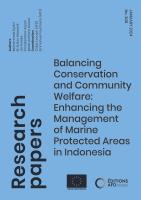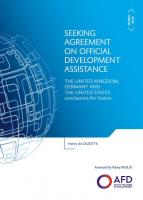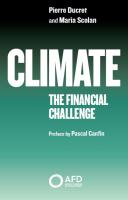From 2009, insecurity linked to the insurgency of the Boko Haram group and its repression spreads from the heart of Nigerian Borno to the north-east of the country and then to the border areas of neighboring countries, Cameroon, Niger and Chad. The crisis has progressively affected the entire region of Lake Chad, one of the great cross-border areas of Sahelian Africa, at the crossroads of Africa savannahs and desert, of West Africa and Central Africa. This study is the first to address the Boko Haram crisis from a perspective transcending the political and linguistic boundaries between English-speaking Nigeria and the three French- speaking countries bordering Lake Chad. Carried out by a multidisciplinary team of seventeen French, British, Cameroonian, Nigerien, Nigerian and Chadian researchers, it considers the Lake Chad region as a system. Its components and their environmental, economic and political interactions are grasped from a diachronic perspective before, during and after the peak of violence. The analysis leads to a prospective reflection considering the next 20 years. Based on the observation that the crisis has shaken the relationship system that made the Lake Chad region resilient, this reference study aims to shed light on the crucial choices that will define its future development trajectory.
-
on the same region
Institutional documentStrategy Documentspublished in April 2024Research documentpublished in January 2024Institutional documentReviews and Activity Reportspublished in October 2023Evaluation documentpublished in July 2023Institutional documentFinancing and Programspublished in November 2022Institutional documentReviews and Activity Reportspublished in June 2022 -
on the same topic
Evaluation documentpublished in April 2024Vidéopublished in March 2024Research documentpublished in March 2024Research documentpublished in January 2024Research documentpublished in January 2024Research documentpublished in January 2024 -
from the same collection
Research documentpublished in June 2022Research documentpublished in January 2018Research documentpublished in November 2017





















